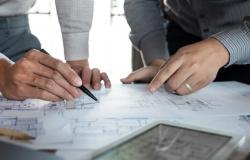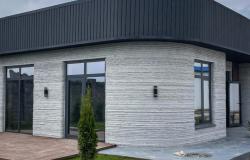Summer has arrived and with it also the first red hot temperatures which made it necessary to turn on the air conditioners. Their use, however, often results in high costs on the bill. Here, then, we ask ourselves: is it possible to avoid excessive spending and heat stroke? Yes, as long as you follow some precise instructions. In this regard, like every year, Enea has provided 14 practical tips for saving by optimally using summer air conditioning.
Enea’s 14 tips for using the air conditioner and saving money at home
How to maximize environmental benefits and energy savings by using the air conditioner during the summer? The Enea technicians explain this by providing the following 14 tips:
Regular maintenance
To function properly, the air conditioner requires regular cleaning and maintenance. Not only that, it is also important to check the tightness of the gas circuit.
An air conditioner that is not properly maintained tends to work under strain, consuming up to 30% more electricity than the factory parameters.
The legislation provides for the obligation of the system booklet and periodic checks for systems with a power greater than 12 kW for summer ones and 10 kW for winter ones.
Finally, we must not forget that mold and bacteria that are harmful to health are more frequently found in air filters and fans, including the legionella bacterium which can be deadly.
Pay attention to the energy class
For lower consumption and CO2 emissions it is preferable to opt for models in an energy class higher than A.
The annual energy consumption indicated on the energy label refers to 1,400 hours of operation in heating mode and 350 in cooling mode, to which the energy consumption in other modes such as standby is added. For example, a class A+++ model will consume up to 40% less electricity than a class B one.
Choose inverter technology
In an air conditioner with an inverter control system, the rotation speed of the compressor is constantly regulated and this allows for optimal performance in any conditions of use, adapting the cooling and heating power supplied to actual needs.
As explained by Enea technicians, models with inverter technology – particularly functional if you plan to keep the air conditioning on for many hours at a time – are more expensive than those equipped with on-off technology, but have lower consumption energy, reduced noise and guarantee greater comfort within the environments served.
Benefit from incentives
For purchases made by 31 December 2024, it is possible to benefit from a tax deduction of 50% or 65%, depending on the intervention carried out and the type of equipment purchased.
In particular, the 50% tax deduction is possible for the purchase of air conditioners carried out as part of building works for renovation or extraordinary maintenance; the 65% deduction is possible for the purchase of high efficiency heat pump air conditioners to replace a lower class one.
Pay attention to the location
The air conditioner must be placed in the upper part of the wall: the cold air tends to descend and will mix more easily with the hot air which tends to rise. To avoid the “barrier effect”, the air conditioner must not be positioned behind sofas or curtains.
Close the shutters during the hottest hours
Closing the shutters, lowering the shutters or shielding the windows with curtains in the central hours of summer days allows you to reduce the solar gains entering the home and, consequently, the energy required by the air conditioners.
Do not overcool the environment and pay attention to humidity
According to the regulations, during the summer season the internal temperature must not fall below 24-26 degrees centigrade but, most of the time, two or three degrees lower than the external temperature are already sufficient.
The feeling of oppressive heat can often be combated by simply activating the “dehumidification” function.
Do not place a single air conditioner in the corridor
Installing just one more “powerful” air conditioner in the corridor hoping that it will cool the entire house is useless. Each room needs its own air conditioning.
Do not leave doors and windows open
When the air conditioner is activated, which works by cooling and dehumidifying the environment in which it is installed by transferring heat and humidity outside, doors and windows should not be left open. The latter can be left open during the cooler hours of the night if the air conditioning is not running.
Insulate the refrigerant circuit pipes outside the house
To avoid unnecessary losses it is necessary to thermally insulate the refrigerant circuit pipes outside the home. It is also advisable to ensure that the external part of the air conditioner is not exposed to the sun and bad weather.
Use programmable thermostats
To optimize energy consumption when you are away from home or at night, it is a good idea to set the thermostat to a comfortable temperature and use cooling programs.
Reduce the heat input of the equipment
During the hottest hours it is advisable to limit the use of equipment (computers, televisions, appliances, lights) that contribute to increasing the internal temperature of the home.
Evaluate the combination of heat pump and photovoltaic
The maximum advantage can be obtained by combining the heat pump system with a photovoltaic system capable of covering the electricity consumption necessary for the operation of the machine.
Do a home check-up
To evaluate the state of the thermal insulation of walls and windows and the efficiency of the air conditioning systems, it is advisable to ask a technician to carry out an energy diagnosis of the building.





